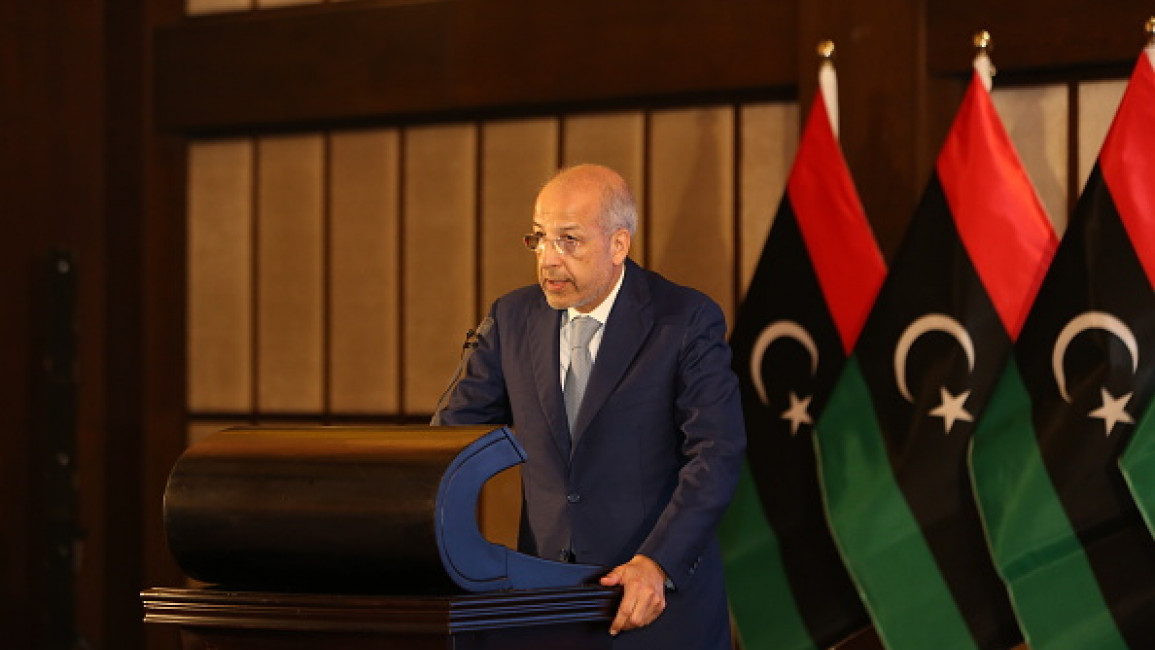Libya's central bank governor pushes for more unified government
Libya's central bank governor on Tuesday devalued the dinar currency and asked parliament's speaker to approve a new unified government, expanding his challenge to the prime minister in Tripoli.
The governor, Sadiq Kabir, is at odds with Prime Minister Abdulhamid al-Dbeibah over the extent of spending by the Government of National Unity (GNU), which is recognised internationally but not by the eastern-based parliament.
Disputes over control of government and access to Libya's state finances have often been at the heart of factional rivalry that has ripped the North African country apart since a NATO-backed uprising in 2011.
In an open letter to parliament speaker Aguila Saleh on Tuesday, Kabir asked him to impose 27% fees on the official exchange rate for all purposes except in sectors funded by the public treasury - a de facto devaluation of the dinar.
The previous exchange rate, set by the central bank in December 2020 after years of different exchange rates operating in areas of Libya controlled by rival factions, was 4.8 dinars to the dollar.
The new rate will stand between 5.95-6.15 dinars to the dollar, with the fees generating an estimated revenue of about $12 billion to help pay off public debt and fund development projects, Kabir said.
His move comes after months of the dinar slipping in value against the dollar, with Kabir last week blaming off-the-books spending by state institutions and asking for a unified national budget.
While the GNU controls Tripoli and northwestern parts of Libya, the east mostly recognises an administration appointed by the parliament.
As Libya’s duelling governments and allied militias compete for control of the country, pollution has flooded the coast. In 2021, authorities in the Libyan capital of Tripoli had to close a range of nearby beaches because of pollution.https://t.co/eJ551hiwS8
— The New Arab (@The_NewArab) February 16, 2024
Claudia Gazzini, Libya analyst for the International Crisis Group, said forming a new unified government, as Kabir suggested, would not be an easy task.
"There is a division in Libya between those who do not want a new government at all," she said.
Efforts by the parliament-appointed government to move into Tripoli in 2022 led to two bouts of deadly clashes that left Dbeibah more deeply entrenched in the capital.
Dbeibah has rejected Kabir's comments, and in an apparent reference to the row he said at a cabinet meeting on Tuesday that there were rumours about national bankruptcy that were aimed at thwarting development projects.


![Minnesota Tim Walz is working to court Muslim voters. [Getty]](/sites/default/files/styles/image_684x385/public/2169747529.jpeg?h=a5f2f23a&itok=b63Wif2V)




![Debris near Rafic Hariri International Airport [Getty]](/sites/default/files/styles/image_330x185/public/2176162423.jpeg?h=a5f2f23a&itok=MCSK9mkM)
![An Israeli air strike on Jabalia killed teenage journalist Hassan Hamad [Screengrab/X]](/sites/default/files/styles/image_330x185/public/2024-10/hassan%20hamad1.jpg?h=c12e0b96&itok=Rd_dyCVp)
